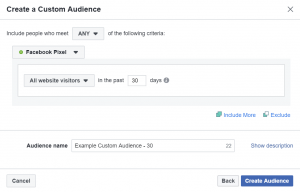Social media monitoring means tuning in every day and carefully listening to what people say, anywhere online, about a person, brand and products. Social media monitoring also refers to tracking various conversations around topics and keywords of your interest.
The web is like the ocean; it has unlimited space that holds countless social channels, groups, forums, platforms and blogs where your buyer personas hang out and discuss things… including YOUR business.
You need to go beyond the mentions and social media notifications to understand the big picture.
Social media listening is about exploring real discussions and turning them into opportunities that will engage and attract people, build brand awareness and improve brand reputation. It’s all about reaching the people that are in need of your reaction, information and content.
Media monitoring provides you with a powerful market insight by allowing you to see who’s doing the talking, what they’re saying and where they’re saying it. Media monitoring lets you join the dialogue wherever it’s happening, so you can show that you care.
Whether you defend your company’s good name, explain any product related issue, or just say thank you, being capable of joining such a conversation is priceless because it lets you stay on top of what’s going on, giving you the upper hand.
Listen Carefully
And you should listen carefully to what is being said because those forum whispers are short-form reviews influence the overall opinion about a brand and products. And a positive brand reputation is an essential motivator that encourages people to purchase your products. Nearly 70% of consumers rely on online reviews before making a purchase. Just take a look at this chart based on Zendesk’s survey:

As you can see above, people rely both on positive and negative reviews.
An efficient social media strategy shouldn’t just focus on broadcasting updates on your social platforms; you must now sharpen your marketing abilities and equip yourself with watchful eyes and open ears to gain market knowledge.
Now you may be wondering why you need to go the extra mile when you already have an established social media presence and are notified every time your brand is mentioned.
Think again; that’s not exactly true.
Social media users often ignore mentioning a brand on a specific social media platform, and it’s not because they want to exclude you from the thread intentionally.
Sometimes they simply forget to add a mention or don’t care about mentioning you at all. Different people and communities may talk about you, but their intention isn’t always to talk with you.
If you rely on social media notifications for all of your market insight, you’re missing out on a large portion of the specifics!
About 30% of all Tweets mentioning your company don’t include your Twitter handle.
This means that even Twitter, a social media network that puts the most emphasis on mentions, indicates a 30% gap in mentions.
So for the 7 mentions you are notified about, there are another 3 that will go unnoticed.
But take it easy. Now that you know what social media monitoring and listening are and what they can do for you, you can put them into practice.
What is the difference between social media monitoring & social listening
Before we can dive deeper into this topic and explain things further, let’s look at the difference between social media monitoring and listening.
We can use these two terms interchangeably in almost all cases – they are practically synonyms – but the two concepts do differ subtly.
This difference can be explained with the help of the following statement:
“Monitoring sees trees; listening sees the forest.”
Social media monitoring refers to searching and collecting data, while listening is all about analyzing the data, defining a strategy and taking action. So, social media listening is a broader concept that takes social monitoring to the next level.
Why is social listening so vital to your business?
The benefits coming from social media monitoring and social listening are countless. So let’s just focus on the basic ones.
Honest Feedback
Online feedback communicates:
- what people think of your customer service,
- how much they like your products,
- whether they read and enjoy your articles,
- how useful your products are,
- what your recruitment process is like,
- user recommendations when product related questions are raised and straightforward opinions.
This non-curated feedback isn’t something you can argue with, so take it to heart, and if necessary, reevaluate the way your business operates.
(Unless a competitor is intentionally trying to ruin your image with black PR.)
In general, user-generated online opinions are honest and come from individuals who have interacted with your website content, contacted your team, or have used your products before.
Depending on the nature of the opinion – whether people are praising or complaining about you – you can jump in and engage with your happy users and brand advocates or try to tone down the frustration.
And remember, feedback provides a strong clue as to what your organization and products need to improve on.
Customer Support
Social listening empowers you to go beyond incoming support emails – from a passive support – to proactive customer service.
Obtaining various real-time alerts, based on the keywords you choose to monitor with a specific social media monitoring tool, will help you stay alert and enable you to react respectively.
Most online forum talks about a brand are wrapped around product quality (especially compared to other brands). They cover product features, pros and cons, and whether the product meets user expectations.
Such talks can be held on Quora, Reddit, a niche group on Linkedin, or on any other one of the millions of websites dedicated to sharing one’s experiences.
Sure, some users might be mistaken and their opinions outdated.
Others may express confusion about features that were fixed, improved or even withdrawn long ago.
But remember, before you jump into a discussion, know who it is you’re going be engaging with. Make sure you can answer the following questions:
- Who is this person?
- How does he or she know your brand and products?
- What does he or she need from you?
- How can you make him or her happy?
The answers to these questions will determine how you go about replying. But the point of joining a conversation is to turn the conversation about you into a dialogue and create a healthy relationship with prospects.
That’s why you need to proceed strategically.
Your replies should always be supportive and express empathy.
Cases will differ: you’ll sometimes find yourself comforting unhappy customers, and other times you’ll bask in the praise of a customer that has nothing but good things to say.
Remember to consider and match the voice and style used by the community on a specific platform. In other words, pay attention to the wording (or business slang) used and try to fit in.
However, if the issue gets more complex and can’t be resolved within a short exchange of messages/ comments/ replies on a public platform, suggest to redirect the conversation to a dedicated (private) support channel.
Lead Generation
The day-to-day social listening and your pro-customer attitude will affect user morale favorably. Your active presence and responsiveness, anywhere online, will eventually bring huge payoffs in the form of referral traffic to your site.
Keep-up the proactive approach and monitor how your traffic sources change in Google Analytics.
Have you recently started using Quora? Mark the date, and after three months, compare the results to the previous period. The growth will surely be visible.
Competitive Analysis
Social media listening will provide you with complete knowledge about your industry, trends and news concerning your competitors.
The proper social listening tool will keep you informed about the actions they take.
You just need to set up alerts correctly so they consist of all the variations of competitors’ brand names and all the necessary phrases for your industry.
The alerts will inform you about your competitors’ newest strategies and may either inspire your next course of action or teach you which mistakes shouldn’t be repeated.
Finding influencers and advocates
Once you start social media listening, you’ll be quick to identify friendly souls who praise you and defend your brand image.
You will also be able to distinguish niche influencers that attract the most attention.
But above all, you’ll gain access to market knowledge which can’t be obtained in any other way.
How to setup your first social listening campaign
- Decide on a powerful software that will allow you to monitor your company and all the related terms across every popular channel among your marketing personas.
- Prepare the list of topics which you want to collect alerts for.
- Create an adequate list of keywords for all of those lists.
- Add topics with keywords to your tool.
- Start monitoring.
- See what types of alerts come in and discuss with your team how to approach recurring cases.
Becoming proactive in customer relations is more important now than ever before. Be a part of the conversation and stop missing out on the opportunity to impact your online reputation.
So go ahead, start today, and you will see how much it is going to pay off.
Happy listening!
Digital & Social Articles on Business 2 Community(98)








